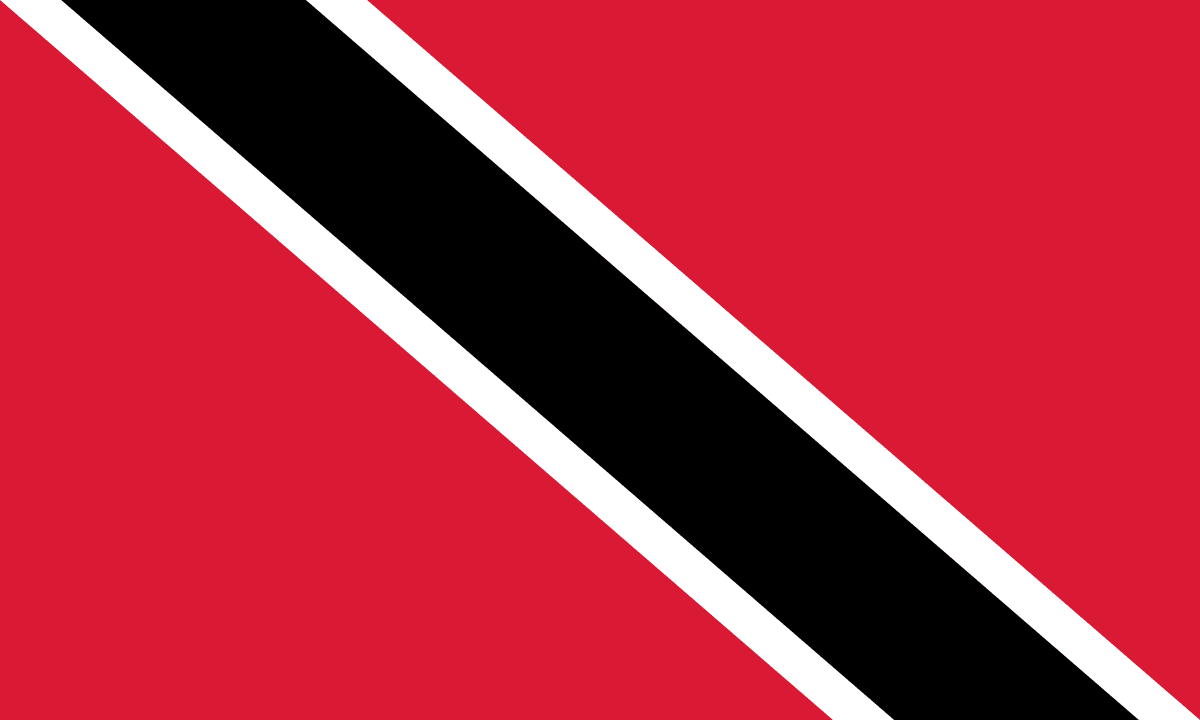Trinidad and Tobago
Trinidad and Tobago joined Promote Pollinators in 2023. The declaration cementing this commitment was signed on the 15th September 2023 by Trinidad and Tobago’s Minister of Planning and Development, the Honourable Pennelope Beckles.
Why did Trinidad & Tobago decide to join the coalition?
Trinidad and Tobago joined Promote Pollinators in order to become part of a global community that works together collaboratively to protect pollinators. As one of the most biodiverse Caribbean Island Nations, Trinidad and Tobago also serves as a habitat for a vast abundance and diversity of pollinators, many of which are yet to be recorded. It is hoped that joining Promote Pollinators will foster an exchange of ideas and best practices to improve pollinator conservation with other members, and to voice the global need for support to achieve local and international pollinator conservation goals.
Trinidad and Tobago hopes to learn from other countries, share its experiences, identify opportunities for improving pollinator conservation, add to a global community that raises concerns and awareness of the importance of pollinators and their conservation, and to build and strengthen partnerships for pollinator conservation.
What is the current situation regarding pollinators and pollination in Trinidad and Tobago?
Knowledge and data
Knowledge and data on pollinators and pollination are scarce in the Caribbean region, including Trinidad and Tobago. Based on available data, Trinidad and Tobago is estimated to host around 150 species of bees, 760 species of butterflies, over 3500 species of moths, 70 species of bats, 18 species of hummingbirds, and 31 recorded species of Syrphid flies in Trinidad, with only one species recorded in Tobago. However, it should be noted that invertebrates, in particular, are vastly understudied, and the actual numbers are expected to be much higher. A recent bee survey identified two additional genera of bees that have previously been unrecorded.
The loss of pollinators and pollination
The loss of pollinators and pollination services has significant implications, including reduced overall biodiversity, decreased climate resilience, compromised food security in terms of diversity, quality, and quantity, and a decline in services provided by plants, which are directly reliant upon pollinators. These services include carbon sequestration, soil retention, water filtration, and protection against storm surges, among many others.
Several key pressures
Several key pressures threaten pollinators in the Caribbean region, including habitat loss, destruction, and fragmentation, excessive and mismanaged pesticide use in agriculture and homes, climate change, alien invasive species and exotic pests and diseases (including those transmitted by honeybees), lack of public knowledge and understanding, inadequate legal protection and policies, insufficient integration into management plans, and a dearth of data on species diversity, status, and trends.
Continuously taking action
Trinidad and Tobago is continuously taking action to improve pollinator management and conservation, which is the result of collaborations between government, NGOs, community-based organisations, private organisations, and the general public. Initiatives undertaken include the development of pollinator gardens and education on sustainable farming practices; as well as the provision of workshops on permaculture and related sustainable practices, seagrass pollination, bat pollination, pollinator identification, and stingless (Meliponini) beekeeping; the compilation of a plant-pollinator catalogue and a Lepidoptera catalogue; the adaptation of pollinator sampling protocols to the local context; a KAP (Knowledge, Attitude and Practices) survey on the attitudes of the general public towards pollinators; the execution of the iNaturalist initiative; the development of guidelines for improved Meliponini beekeeping; providing resources for and encouraging communication within a network of Meliponini beekeepers; the creation of public education materials and education materials specifically for schools; as well as the promotion of a Caribbean beekeeping app. The country’s participation in the BIOSCAN Programme further assists in the provision of valuable data on pollinator species.
How is Trinidad and Tobago working with its national strategy? What are the efforts?
The Theory of Change Workshop conducted in September 2023 in partnership with Promote Pollinators provided an excellent starting point for the development of pollinator-specific policy instruments. Thus far, the Beekeeping and Bee Products Act governs the management of bees that produce honey. Additional protection for pollinators is obtained through the protection of habitat via the Forests Act and the protection of specific land areas via designated Protected Areas. The White-Tailed Sabrewing Hummingbird (Campylopterus ensipennis) is currently the only pollinating species that has been designated as an Environmentally Sensitive Species (ESS). Collection of any organism within a Protected Area requires a permit issued by the Wildlife Section, and the same applies to organisms to be exported for scientific or other purposes.
What are Trinidad & Tobago’s expectations for the future?
Next steps include taking the Theory of Change forward to develop a Pollinator Management Plan and National Pollinator Strategy. Efforts to protect pollinators will continue, with ongoing public engagement and education and increased efforts to assess and identify pollinators and their populations. Further to this, the upcoming revision of the National Biodiversity Strategy and Action Plan will take pollinator and pollination management and conservation into consideration in fulfilment of the corresponding Targets of the Kunming-Montreal Global Biodiversity Framework.
Tips for other members
Stakeholder engagement and collaboration among all sectors are key in protecting pollinators. Fostering relationships and creating networks of persons and organisations with similar objectives provides a good basis for developing and executing plans and projects geared towards promoting pollinators. Community engagement is crucial in this process.
Contact
Interested in learning more about Trinidad and Tobago’s efforts to promote and protect our pollinators? Feel free to contact Dr. Lena Dempewolf – lena.dempewolf@planning.gov.tt at the Environmental Policy Planning Division of the Ministry of Planning and Development.

